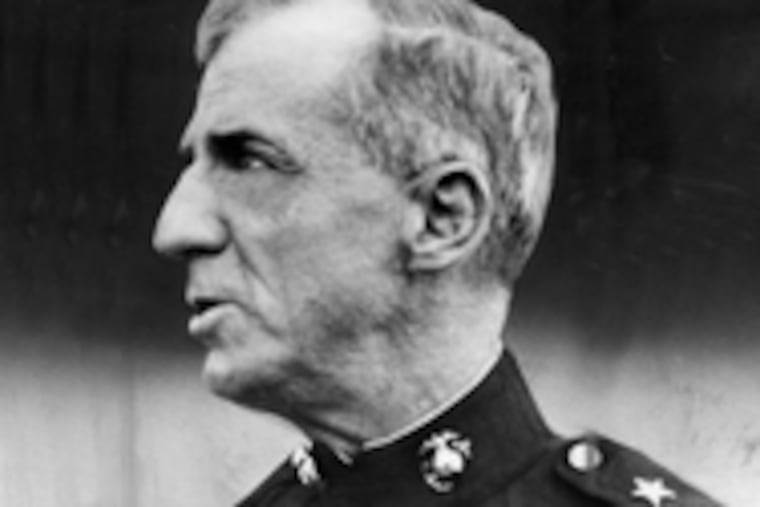Joe Sixpack | Raise a glass to mark Prohibition's end
TOMORROW IS the 74th anniversary of the end of Prohibition, a day beer makers would like you to mark by raising a toast tonight - Brew Year's Eve - to the end of America's 13-year, 2-month, 22-day drought.

TOMORROW IS the 74th anniversary of the end of Prohibition, a day beer makers would like you to mark by raising a toast tonight - Brew Year's Eve - to the end of America's 13-year, 2-month, 22-day drought.
Call me a Prohibition-denier, but after a few hours with some yellowing 1920s newspaper clips, I'm beginning to wonder if the city ever really stopped drinking. Reading those old news stories, you get the impression that someone forgot to send Philly the memo, you know, about that whole 18th Amendment thing.
Throughout Prohibition, an astounding 8,000 speakeasies in every neighborhood across the city continued to sell beer (compared to about 1,300 taverns today).
City Hall didn't care to spend any money to close them down, so federal agents were sent in to enforce the rules. More often than not, the Treasury men found the bars and breweries were protected by local cops, paid off by racketeers and saloonkeepers.
Beer flowed mainly because many breweries never stopped making it. Kensington's Weisbrod & Hess, now the home of Yards Brewing, was caught at least twice with beer in its tanks.
Others licensed to make near beer with just 0.5 percent alcohol often "forgot" to dilute the batches, producing "strong beer" with the usual 4.5 percent alcohol content.
In 1924, almost five years into Prohibition, President Calvin Coolidge sent in Marine Gen. Smedley Butler to crack down on the illegal booze as the city's director of public safety. A West Chester native and Haverford School grad, Butler was a local hero who dressed in a flowing scarlet-lined cape while leading speakeasy raids.
His task - to clean up "corrupt and contented" Philadelphia - was daunting.
Early on, he uncovered a scam in which a North Philadelphia brewery led entire convoys of beer-filled trucks past unsuspecting cops with a limousine that was identical to Butler's personal car. The brewery had even found a guy who looked like Butler's chauffeur to drive the lead car.
Inevitably, anyone picked up would be released immediately by crooked magistrates. Under Butler, more than 10,000 speakeasy operators were arrested, but only 10 percent were brought to trial and fewer than half of those were actually fined.
Local pols snickered at "Old Gimlet Eye" - till he turned his attention on their own posh clubs. In 1925, after raids on the Bellevue-Stratford, the Ritz-Carlton and the Union League, the mayor fired Butler.
"They wanted me for window dressing," the general declared on the way out of town. The city, he said, was "wet as ever."
The Police Department was either complicit or just plain sloppy when it came to enforcement.
In late 1926, cops staking out the Rising Sun Brewery on what is now Temple University's campus didn't think twice as a delivery truck repeatedly raced from the brewery's gates and into a garage across the street, only to return to the brewery a couple hours later.
This went on for weeks while Philly's finest just sat and watched. It was only after investigators got a tip that they found the garage had been outfitted with a false interior brick wall. Inside, workers used pulleys to raise the wall and offload the truck to another one waiting in an adjacent garage. The second truck would exit on the next street over, and nobody was the wiser as the brewery moved as many as 600 half-barrels a day.
The Feil Brewery, at 6th Street and Susquehanna Avenue, didn't bother going to such lengths to avoid police detection. It used off-duty cops to deliver its beer. Fourteen of them were eventually busted.
Across the river, the Camden County Beverage Co. stretched a rubber hose through the city's sewers to pump its product four blocks away to a hidden beer drop. The scheme was overseen by a former administrator of Philadelphia's prohibition office.
Public opinion was firmly behind the beer-makers. During brewery raids, crowds would gather outside and heckle the T-men as they dumped suds into the streets. In 1931, A's fans famously booed President Herbert Hoover during a World Series game at Shibe Park, disrupting the game with their chant of "We want beer!"
It wasn't till Prohibition was nearly 10 years old that any local brewery execs faced serious criminal charges. In 1929, the president of the Foch Cereal Beverage Co. at 5th Street and Columbia Avenue (now Cecil B. Moore Avenue) was convicted after a prosecutor convinced the jury that strict enforcement of anti-alcohol rules would "crystallize sentiment" to have those very rules "wiped from the statute books."
The end came on April 7, 1933, after FDR pushed Congress to modify the Volstead Act to permit production of beer with 3.2 percent alcohol by weight.
It was too late for most of Philly's breweries, however. The phony chauffeurs, payoffs, false walls and other subterfuge just weren't enough, and only a dozen of the city's 40 large breweries emerged alive.
Raise your glass
Celebrate the end of Prohibition tonight, with a Brew Year's Eve toast to FDR at local bars, sponsored by Victory Brewing. Participating taverns will serve Victory's Throwback Lager, a pre-Prohibition-style lager made with yeast from the old Schmidt's brewery. More details at www.victorybeer.com. *
"Joe Sixpack" by Don Russell appears weekly in Big Fat Friday. For more on the beer scene in Philly and beyond, visit www.JoeSixpack.net. Send e-mail to joesixpack@phillynews.com.